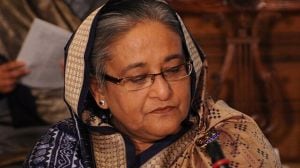CBI drags feet in Central Bank fraud case
MUMBAI, DEC 12: Last week, the Central Bureau of Investigation (CBI) filed an affidavit of one of its officers before the Bombay High Court...

MUMBAI, DEC 12: Last week, the Central Bureau of Investigation (CBI) filed an affidavit of one of its officers before the Bombay High Court. The affidavit is a telling example of how corruption cases registered with the premier investigating agency of the country take six years to reach anywhere near trial.
Senior officers of the Central Bank of India allegedly colluded with an influential businessman to cause the bank a loss of over Rs 12 crore, and on a complaint filed on April 17, 1991, the Anti Corruption Bureau of CBI, Mumbai, registered two cases in March 1992. The agency has now received sanction to prosecute the former Zonal Officer of the bank, N S Daboo.
But the sanction order under Section 197 CrPC for the former CMD of the bank, N M Mistry, who had retired in 1992, is still awaited.
Taking off from the complaint filed by K N Gangoli in 1991, the CBI filed two regular cases in March 1992. The complaint alleged that bank officers had granted advances to the K N Sanjanwala group of companies to the tune of Rs 31 lakh (in 1986) without checking the performance of the companies. The first company was Universal Shots and Grits Pvt Limited, in which Sanjanwala’s wife was a director.
The officers named were N M Mistry, then CMD, S A Deshpande, Regional manager and V D Kulkarni, general manager, as responsible for the advances made to Universal without thorough examination of the charge documents.
When the Registrar of Companies sought some clarifications on the security documents, the directors of Universal Shots and Grits declared that they had closed down the company, and the bank allowed the closure of the account. This was followed by a number of companies, all floated or promoted by the same group of persons, which further got more advances from other branches of the bank. In one of the companies, Poorvi Agencies, Kulkarni’s son was a partner, Gangoli alleged.
Gangoli is the owner of a Small Scale Industrial unit in Andheri and is a debtor of the bank. He chose to tell the High Court that he could not pay his dues to the bank precisely because his money was stuck with K N Sanjanwala group of companies, who in turn were defaulters of the Central Bank of India.
In the two cases registered by the CBI, the first one relates to the disbursal of Rs 31 lakh. The CBI has not found “sufficient evidence to prove the guilt of the accused,” but has recommended departmental action against S A Deshpande, and C J Shroff, branch manager for the “irregularities committed.” The report of the CBI was sent to the bank on November 30, 1994. Deshpande had retired in July 1992, and Shroff was already dismissed by the bank in another case on April 28, 1989.
In the second case, the CBI has found that disbursals made to 13 companies of the Sanjanwala group were made on telephonic instructions, and “were found contrary to the norms and practices of prudent banking.” The CBI has had found evidence of the alleged criminal conspiracy between K N Sanjanwala, A K Sanjanwala, Prem Sawhney, B N Shah, K L Shah, S K Shah, Nandini Dixit, A V Chincholkar and bank officers, including Mistry, V D Kulkarni (retired in October 91), and N S Daboo (suspended in October 1991).
While the Central Bank denied that it had shielded either Sanjanwala or its officers, the fact remains that despite a complaint made by another (albeit aggrieved) client of the bank in April 1991, trial of those responsible is yet to see the light of day. The bank has, of course, filed suits for recovery of the money. Even after the CBI sent its report on the second case to the bank in August 1996, the sanction of Mistry is still holding up the prosecution.
A 1994 inspection report of the RBI’s Department of Banking Operations and Development, (DBOD), faulted Central Bank of India’s corporate advances for the years 1991-93, stating that in the case of Sanjanwala group of companies, the sticky balances were to the tune of Rs 12.34 crore.
According to the RBI, Kartik International was sanctioned Rs 3.86 crore when its sanction limit was Rs 7 lakh. A joint account of K N Sanjanwala and Asha Sanjanwala received Rs 2.34 crore despite a limit of 0.3 lakh. Cross Seas and Leasing and Investment Company was granted Rs 2 crore, which also turned a sticky advance. All these were Sanjanwala’s companies.



- 01
- 02
- 03
- 04
- 05




























